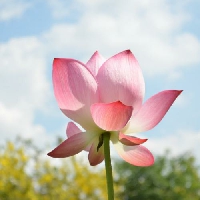Jinan Deya High School is located in the Xueshan area of Licheng District. It is a school with Beijing International Studies University. The national tuition standard is 0-57800 yuan/year. Accommodation conditions: the school's accommodation environment is comfortable. Every three people are a dormitory. There is an independent shower room. It uses dry and wet separation. Air conditioning and floor heating are available. Class size: about 30 people per class Address: Jiangshan North Road, Tangzhi Sub district Office, Licheng District, Jinan
How about Jinan Deya High School
Jinan Deya Senior High School is a featured senior high school invested and built by Jinan Urban Investment Group and jointly run by Beijing International Studies University International Education Group.
1、 School location: The school is located in the Xueshan area of Licheng District, east of Hancanghe East Road, north of Jiangshan North Road, with convenient transportation and superior geographical location!
2、 School running characteristics:
1. Featured small class, teaching students in accordance with their aptitude, with a high proportion of 30-35 teachers and students in each class, teaching students in accordance with their aptitude, ensuring students' learning, life and all-round development.
2. A team of famous experts in running the school. Chinese and foreign presidents lead the advanced teaching philosophy and jointly manage the school with many experts from Beijing Foreign Studies University. The leaders of all disciplines shall be the provincial and municipal special grade teachers, senior teachers, excellent head teachers, etc.
3. The smart campus has a beautiful environment, equipped with advanced hardware and software facilities, a beautiful campus environment, rich places, and a smart campus to fully guarantee students' diversified learning and personality development.
4. Closed management of full-time accommodation, four room accommodation, independent bathroom and air conditioning.
5. The course setting is reasonable, adopting the advanced shift system, and each minor subject has a separate laboratory.
The Importance of Choosing a Good School
1、 Advantages of students
The vast majority of students in good schools are excellent in both character and learning, which creates a good environment of stability, mutual assistance and competition for their children's learning, which cannot be measured by money.
2、 Advantages of teachers
The greatest capital of a good school should be good teachers. A good teacher is one who has ideals, beliefs, moral sentiments, solid knowledge and benevolence.
3、 Advantages of management
The reason why a good school becomes a good school must be that its management is scientific and effective, which has promoted the teaching to achieve admirable results. Therefore, its management philosophy and management methods must conform to the law of children's development and growth, which is not realized by ordinary schools, but also cannot be done in a short time.
4、 Advantages of facilities and equipment
As a good school accumulates fame, it also accumulates wealth, so the facilities and equipment for education and teaching must be complete and high-quality. Not only is the campus environment pleasant, clean and attractive, but more importantly, the auxiliary facilities for teaching are advanced and perfect, which can greatly improve the teaching effect.
5、 Advantages of social resources
A good school has not only good internal resources, but also abundant external social resources. They can not only invite external education and teaching experts to teach their experience, but also share resources with other famous schools in all aspects. Children will have a broader vision and make greater progress.











